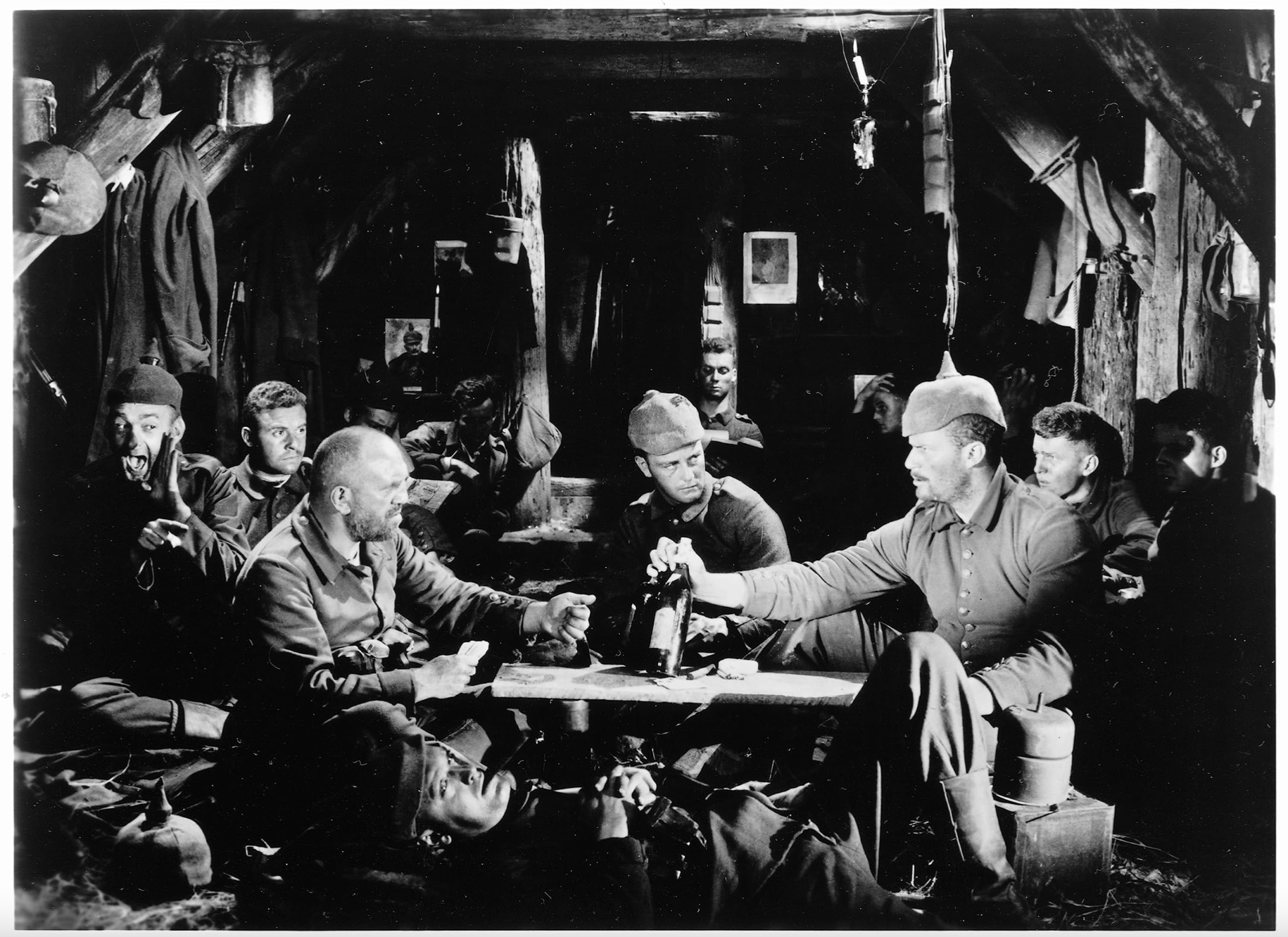Scholia to an Implicit Text by Nicolás Gómez-Dávila
Bilingual selected edition, translated by Roberto Pinzón
(Bogotá, Colombia: Villegas Editores S.A., 2014)
Men shift ideas less than ideas trade disguises.
During the course of centuries, identical voices dialogue.
—Nicolás Gómez-Dávila
Nicolás Gómez-Dávila’s (1913–1994) Scholia to an Implicit Text (Escolios a un Texto Implicito) is a work of aphorisms. Preoccupied with several recurring themes—the embrace of tradition, moral-spiritual truancy in the modern world, Christianity, the futility of revolutions, and history as cyclical—the Colombian thinker makes the case that modern man is incapable of forging objective and lasting heuristic lessons from history.
Once the reader deciphers the meaning of the text’s obscure title, the illuminating power of Gómez-Dávila’s rare philosophical acumen quickly becomes apparent. By “implicit,” one can understand him to mean the traditional Western knowledge and wisdom that have been passed over in favor of timely and explicit contemporary theories. Gómez-Dávila makes the case that the lamentable state of modernity owes its dissolution to modern man’s convenient social-political and moral-spiritual myopia.
Gómez-Dávila thinks of his aphorisms (escolios) as scholia, that is, annotations, explanations, glosses, or commentaries on philosophical questions, problems, and dilemmas. The implicit text that forms part of the title of this work refers to human history. “Implicit” implies that much hard-earned wisdom has been expunged from history and the history of ideas. In Gómez-Dávila’s estimation, human history is a colossal repository of qualitative essences. The interplay of these differentiated and essential building blocks of human reality is what determines history, and not collective movements. The main consequence of modernity’s creation of explicit history, that is, the creation of unequivocal theories, is that human reality has been turned into a social-political ordeal and an existential wasteland.
The laconic nature of Gómez-Dávila’s aphorisms suggests a concentric pattern of thought that expands from a handful of first principles. His aphorisms are reinforced by others, constituting a web of interlocking ideas and values. The meaning of each aphorism is but the culmination of a more elaborate argument. This is what disinterested thought accomplishes, Gómez-Dávila informs us. It is the complementary nature of his aphorisms that save the author from falling into the trap of theoretical pedantry: “Pedantry is the weapon with which professionals protect the interests of their guilds.”
Moreover, the limited capacity of the aphoristic form to disclose universal truth imparts great patience and humility to a thinker. This is so because, having hit upon a morsel of truth, thinkers who employ the aphorism as a vehicle for philosophical reflection trust the reader’s capacity to interpret the significance of their findings. This is one reason why one does not encounter unnecessary verbiage in Gómez-Dávila’s cogent escolios. Stylistic simplicity and austerity inform his genius for metaphysics.
Gómez-Dávila’s poetic rendering of philosophical reflection in the form of aphorisms is reminiscent of T. E. Hulme’s untitled poem, where the English poet meditates on the passage of time in merely eight words: “Old houses were scaffolding once and workmen whistling.”
For Gómez-Dávila, objective knowledge and values—human understanding that has been tested in the court of history—ought not to be discarded for the glare of ephemeral intellectual fads. Man and society suffer greatly when the knowledge and wisdom of tradition is no longer passed down to subsequent generations. According to Gómez-Dávila, the great trouble with modernity is that it has cut all ties with tradition. Experience alone teaches nothing. Man must collect, annotate, organize, and make sense of experience in order to reap lasting knowledge. Gómez-Dávila reminds us that man rarely learns from history: “For modern man, catastrophes are not lessons but insolences of the universe.” He argues that modernity’s destruction of objective standards created a vacuum that has allowed modern man to implement our own selfishly customized and opportunistic values. Gómez-Dávila makes this clear: “Becoming adapted is sacrificing a remote good for an immediate urge.”
The job of the philosopher, Gómez-Dávila informs us, is constructive—descriptive of the implicit essences that make up human reality. Philosophers, besides possessing nobility of spirit, must also practice goodwill, which must take the form of intellectual honesty: “The philosopher is not a spokesman for his age but an angel captive in time.”
Philosophers cannot become bogged down in technical questions and hairsplitting. This is one reason why he eschews academic philosophy, a hybrid form of philosophical scholasticism that makes little use of philosophical reflection. It is also for this reason that he could not stomach analytic philosophy. The latter he considered diseased, the plaything of people who have nothing to say about vital existence. The main task for constructive thinkers, then, Gómez-Dávila asserts, is to decipher the riddles of human existence. That is, philosophers must attempt to explain human reality, not try to change or transform the world. It is when man does the latter devil’s work that modernity reveals its sophomoric and nihilistic face: “The devil reserves the temptations of the flesh for the naivest and prefers to exasperate the less gullible by stripping everything of its sense.” In contrast to the task of uncovering the worth of objective values for posterity, the intent of nihilism is to destroy all values that do not speak to the demands of the present. He writes, “Silly ideas are immortal. Each generation invents them again.” Of course, the glaring implications of the latter signal the contradictory nature of nihilism. For, if what matters most is the celebration of the present, given its fleeting makeup, which in turn must quickly give way to an infinity of other present-moments, then to place stock in the present proves to be an equally fruitless task. This is the meaning and legacy of nihilism: “When respect for tradition perishes, society—in its unceasing eagerness to renew—devours itself frantically.”
Gómez-Dávila’s thought makes known his quest for Western renewal. History, culture, literature, the Catholic Church, to name just a few of his concerns, operate best when their hierarchical structure is identified and respected. The hierarchical inner workings of human reality, he argues, cannot be made known in formulaic, systematic works: “Literature and art soon become sterilised where practicing them makes people rich and admiring them provides status.” Such attempts at deciphering the puzzles of human reality are not only inadequate, he is wont to say, but eventually deliver man to forms of cynicism that emerge from relativism: “Life is a hierarchical workshop. Only death is democratic.”
His concern is that philosophical truths, which fuel human history, are eventually ignored or splintered into a variety of customized values that only pay allegiance to the demands of the present: “Modern man has no inner life—if anything, inner conflicts.” This is the corruption of the human person that Gómez-Dávila saw taking root throughout the twentieth century. Decadence is the culprit of man’s moral-spiritual corruption, he tells us. Moral-spiritual corruption is fueled by a cynical disregard for the knowledge and wisdom of tradition. Nihilism is the end product of moral-spiritual corruption. For this reason, nihilism can offer only a debilitating reading of history, human reality, and human relations, which is filtered through personal whims and desires, not disinterested truth.
* * *
Gómez-Dávila identifies liberalism as the debased source of twentieth-century moral-spiritual corruption. The embrace of nihilism-as-reality, he argues, serves to destroy the coherence of human existence. Consider the following aphorism about modern life: “Adaptation to the modern world exacts both the sclerosis of our sensibility and the debasement of our character.”
Gómez-Dávila describes his work as “reactionary.” However, his alleged intransigence can best be construed as a quest for renewal of the first principles that man has turned his back on: “The true reactionary is not a dreamer of bygone times but a hunter of sacred shadows upon the eternal hills.” Permanence is what matters to him, not moral-spiritual experimentation. For instance, he debunks the vacuous claims of evolutionists by demanding that modern thinkers demonstrate why evolution must necessarily mean progress and not also devolution. Contrary to evolution, he argues that history is the unveiling of man’s Janus-faced nature, and not a linear progression that leads to utopia. What we encounter in history is the manifestation of primal aspects of man’s nature, which are allowed to flourish in accordance with the degree of revelry that a given age permits.
A morally bankrupt age, as he considers modernity to be, naturally encourages further demeaning of the human person: “History is less evolution of humankind than display of faces of human nature.” The real progress encountered in history is that which individuals accomplish: “The only possible progress is the inner progress of each individual.” History is the quilt that places the essence of the individual on display. Man ought to pay close attention to the unveiling of human reality and cherish the time-proven morsels of truth that make life civilized, and not tamper with what is not broken.
What some consider intransigence, Gómez-Dávila merely views as prudence: “Swimming against the tide is no folly if the waters flow towards a waterfall.” For example, this is one reason why he opposed the Second Vatican Council. For Gómez-Dávila, the antihierarchical spirit of that meeting of Catholics meant that intelligence, not vocation, would eventually triumph in the Church founded by Peter the Apostle. He warns of a time to come when Christianity would be turned into a worldly, secular religion that would become stripped of transcendence; spiritually gutted but still believing it has something to say about man’s moral-spiritual fate: “Modern theologians aspire to transform the Christian doctrine into a simple ideology of communal behaviours.”
Like St. Augustine, he stresses that Christianity is not solely about this world; Christians should keep the city of God as their ultimate prize: “Neither religion sprang from the urge to ensure social solidarity nor were cathedrals built to promote tourism.” To this point, he adds, “Christ did not leave documents but disciples.”
* * *
Another essential aspect of Gómez-Dávila’s thought is that he was a voracious reader. He was formed in a time when Latin Americans were well-rounded readers. Jorge Luis Borges and Octavio Paz are two more writers who belong to this extinct category of reader. Gómez-Dávila’s reading centered on classical texts. It is estimated that he had accumulated more than thirty thousand volumes by the time of his death. Gómez-Dávila’s reading can be thought of as being concentric in makeup. That is, reading for knowledge and wisdom entangles the conscientious reader in a web of understanding that expands outward, embodying Socrates’s belief that the more we know, the more awe and wonder we cultivate. This is a form of reading that discriminates between what is uplifting and what is base. Socrates’s dictum also serves as a warning that we must be vigilant not to tolerate nonsense. Modernity, according to Gómez-Dávila, has placed variegated forms of nonsense on an altar that venerates the here-and-now. He writes, “In a century when advertising media broadcasts infinite nonsense, the cultured man cannot be defined on what he knows but on what he does not know.”
Gómez-Dávila’s systematic reading is rooted in Greco-Roman and Christian thinkers who addressed eternal human concerns and conundrums—what Gabriel Marcel considers the fundamental difference between problem and mystery—by offering timeless answers. Science and reason are limited in what they can offer man at an existential, lived, and thus concrete level: “Anything that makes man feel surrounded by mystery makes him more intelligent.”
Philosophical anthropology is a major source and inspiration of Gómez-Dávila’s philosophical reflection. This facet of his thought makes him a Catholic personalist, much like Julián Marías, for instance. Gómez-Dávila was of the belief that, if man could truly grasp the never-changing essence of human nature, a vast number of our social-political problems would vanish. Thinkers grounded in the belief that human reality is sub specie aeternitatis display an enlightening, intuitive sense that much of lasting value in human existence is lost through succeeding generations. This conviction forms part of Gómez-Dávila’s urgent call for renewal of culture, Christianity, and the hierarchy of values that have made Western civilization possible.
The 2014 Villegas Editores selected edition and English translation of Nicolas Gómez-Dávila’s Escolios is a superb work of scholarship that displays great fidelity to the meaning and insight of the original Spanish aphorisms. This is an important work that helps to make known a little-recognized contemporary thinker who has much to contribute to Western culture’s renewal, if the latter is ever to occur: “Civilised individuals are not the result of a civilisation but its cause.” ♦
Pedro Blas González is professor of philosophy at Barry University. He is the author of seven books, including Human Existence as Radical Reality: Ortega’s Philosophy of Subjectivity and Unamuno: A Lyrical Essay.














